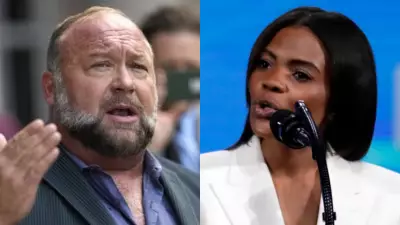
The political legacy of Dick Cheney, once America's most powerful vice president, is undergoing a dramatic reassessment as historians and political analysts trace the direct line from his post-9/11 policies to the rise of Donald Trump and the populist movement that bears his name.
The Unchecked Power Era
Following the September 11 attacks, Cheney orchestrated a fundamental transformation of American governance. His philosophy of expansive executive power, often operating outside traditional congressional oversight, established precedents that would later be exploited by subsequent administrations.
Key elements of Cheney's approach included:
- Advocacy for enhanced surveillance capabilities that prioritized security over privacy
- The establishment of controversial interrogation techniques bordering on torture
- A foreign policy doctrine emphasizing preemptive military action
- The creation of a massive homeland security apparatus
Normalizing Political Extremes
Cheney's political tactics, particularly his aggressive approach to opponents and willingness to challenge institutional norms, created a template that Trump would later amplify. The vice president's famous "1% doctrine"—if there's even a 1% chance of a threat, treat it as a certainty—represented a radical departure from traditional risk assessment that resonated with Trump's base.
The Institutional Damage
Perhaps most significantly, Cheney's tenure saw the systematic weakening of America's democratic institutions. The concentration of power in the executive branch, coupled with a dismissive attitude toward congressional oversight and traditional media, eroded the checks and balances that had defined American democracy for centuries.
The Populist Inheritance
While Cheney and Trump represent different wings of the Republican party, their methods reveal striking similarities. Both leaders:
- Embraced confrontational rhetoric against political opponents
- Questioned the legitimacy of institutional critics
- Prioritized loyalty over expertise in appointments
- Viewed traditional media with deep suspicion
The irony is profound: Cheney, who considered himself a defender of conservative principles, helped create the conditions for a movement that would ultimately reject many of those same principles in favor of populist appeal.
A Reckoning Arrives
Today, as Cheney's daughter Liz finds herself exiled from the party her father helped shape, the full circle of this political transformation becomes clear. The institutions Dick Cheney strengthened in the name of security and weakened in the name of efficiency have been fundamentally altered, creating an American political landscape that would have been unrecognizable two decades ago.
The Cheney legacy serves as a cautionary tale about how short-term political victories can have long-term consequences that fundamentally reshape a nation's political DNA.





